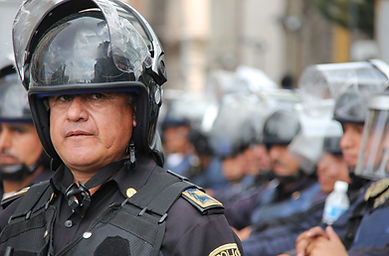Penal Code 243(b) - Battery Against a Police Officer

ELEMENTS OF THE OFFENSE
To prove you are guilty of PC 243(b), Battery Against a Police Officer, the DA must prove each of the following elements beyond a reasonable doubt:
-
The police officer was an officer performing their duties under Penal Code 830.
-
You willfully and unlawfully touched the police officer in a harmful or offensive manner;
-
When you acted, you knew, or reasonably should have known, that the police officer was a peace officer who was performing his or her duties; AND
-
You did not act in self-defense or in defense of someone else.
If the case was filed as a felony, then there's a critical additional element that the DA prove the police officer suffered an injury as a result of the touching.
UNDERSTANDING THE ELEMENTS
What does “willfully” mean?
Someone commits an act willfully when he or she does it willingly or on purpose. It doesn’t matter whether or not you intended to break the law.
How much touching is considered battery?
The slightest touching can be enough to commit a battery if it is done in a rude or angry way. Making contact with another person, including through his or her clothing, is enough. Assuming this is the misdemeanor version of this charge, the touching does not have to cause pain or injury of any kind. It can even be done indirectly by causing an object, or someone else, to touch the other person.
What is an injury (in the event case was filed as a felony)?
An injury is any physical injury that requires professional medical treatment. The question whether an injury requires such treatment cannot be answered simply by deciding whether or not a person sought or received treatment.
Who is defined as a police officer?
The DA is going to have to prove that the alleged victim is, in fact, currently employed as an officer, which shouldn't be too difficult. If they're retired or something along those lines, that won't count.
It does not matter whether the police officer was actually on duty at the time. So you won't win on a technicality because an officer's shift was over or hadn't begun when the battery occurred. However, that assumes he or she was still in uniform or wearing something or doing something to indicate to a reasonable person that is an officer. In other words, if the officer was off-duty and wearing plain clothes rather than a uniform, then the DA should not win on this charge, unless the DA can establish you and the officer have a long history and you clearly knew about his or her status as an officer.
Also, let's say they can't prove the officer element, that doesn't mean you necessarily walk away free. They can still go after you for plain old simple battery (or something similar), just not the specific charge of battery on a peace officer.